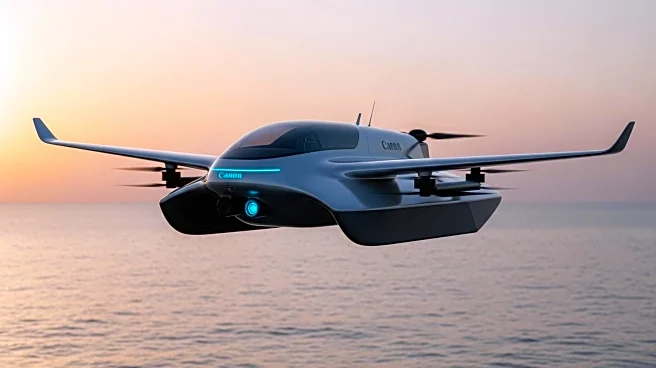What's Happening?
HavocAI, a developer of maritime autonomous systems, has secured $85 million in new capital from investors including B Capital, In-Q-Tel, and Lockheed Martin. The funding will enable HavocAI to scale its autonomous maritime platforms and increase manufacturing capacity to meet the U.S. military's demand for thousands of autonomous boats. The company plans to integrate autonomy into new vessel types and sizes, enhancing the capability and interoperability of its technology. HavocAI has delivered over 30 operational products to the U.S. military and demonstrated scalable collaborative autonomy in real-world scenarios.
Why It's Important?
The funding positions HavocAI to become a key player in the maritime autonomy sector, addressing the growing demand for autonomous systems in military and commercial applications. The investment reflects the strategic importance of advanced autonomous capabilities in enhancing maritime security and operational efficiency. HavocAI's technology could significantly impact defense strategies, enabling more effective surveillance, reconnaissance, and operational missions. The company's software-first approach may lead to innovations in fleet management and autonomous operations, influencing future developments in maritime technology.
What's Next?
HavocAI plans to use the funding to expand its production capabilities and integrate its technology into new vessel types. The company aims to support increased demand from the U.S. military and provide direct support to international allies, particularly in the Indo-Pacific region. HavocAI's strategic initiatives may lead to partnerships with other defense technology firms and collaborations with international stakeholders. The company's focus on operational resilience and financial stability could attract further investment and drive growth in the maritime autonomy market.
Beyond the Headlines
HavocAI's success highlights the potential for autonomous systems to transform maritime operations, offering insights into the future of naval warfare and commercial shipping. The company's emphasis on collaborative autonomy and self-organizing fleets may redefine traditional concepts of fleet management and operational control. The funding also underscores the importance of technological innovation in maintaining strategic advantages in defense and security sectors, prompting discussions on ethical and regulatory considerations in autonomous system deployment.









